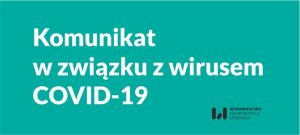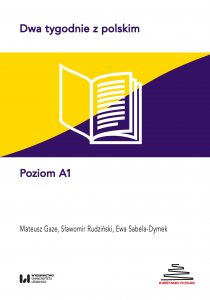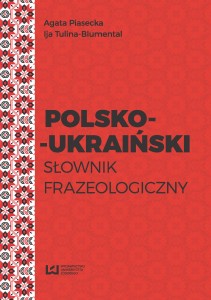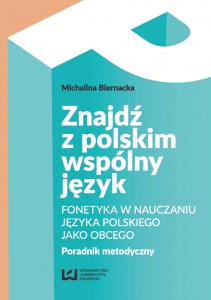E-Scripta Romanica |Vol. 10
Opublikowano: 14 października 2022
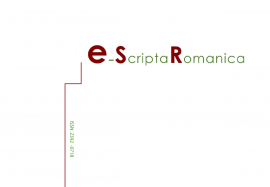
Zapraszamy do lektury e-Scripta Romanica – naszego interdyscyplinarnego czasopisma naukowego, którego celem jest rozpowszechnianie wyników badań filologicznych w językach romańskich, głównie w dziedzinie językoznawstwa, literatury, tłumaczeń i dydaktyki. Rocznik publikuje artykuły w języku francuskim, hiszpańskim i włoskim. Redaktorem naczelnym czasopisma jest dr Łukasz Szkopiński.
W tomie 10:
Daouda Coulibaly
L’état z’héros is a work in which Maurice Bandaman integrates the tale into the frame structure of the novel. Its discursivity is based on a number of oral intertexts including ritual songs, stanzas, opuses and references integrated in the form of a literary collage. At the narrative level, the voices of the narrators interact with those of the characters in dialogues and autonomous monologues by characters or narrators. These dialogic relationships highlight narrative metalepses that are polyphonic. It is one of the marks of literarity, the main driving force of stylistic analysis. The aims of this article are, firstly, to show that dialogism and intertextuality are two approaches echoing each other in the stylistic analysis of novelistic texts and, secondly, to prove that intertextual relations lead to polyphony and bring literarity to the fore.
Diachronical preservation of a phraseological unit: tenses in indefinite constructions with gana
Liliana Ruiz Velasco D.
The article deals with the verbal form in indefinite constructions with dar la gana and dar gana in Spanish. The results show that dar la gana was expanded morphologically to other tenses, while dar gana shows a decrease on its tenses in contemporary Spanish. It is concluded that the first one was fixed on indefinite constructions unlike the latter. The results also show an alternation between de indicative and the subjunctive moods. It is explained through its association with de distinction between specific and non-specific.
Przemyslaw Szczur
This article is an analysis of the process of stereotyping Poles as secondary characters in Belgian literature in French. The author studies the links between secondarity and stereotyping, drawing his examples from texts published between the 1930s and 2021. Analyzing the main stereotypes about the Poles, he notes their essentially pejorative content, but considers them above all as tools serving to create verisimilitude of the represented world.
From infernal journeys to the art of scandal with August Strindberg
Daniel S. Larangé
August Strindberg abandons his family, plunges into the Parisian hell and struggles with the angel in order to regain his faith. He disappoints his public by becoming an alchemist and painter in order to better fight against institutionalized positivism and academic aestheticism. Under the mask of madness, he overthrows all established institutions and blurs the boundaries between objectivity and subjectivity. He disrupts, disturbs, shocks; his strangeness seperates him from the world and assures him, by imitatio Christi, his own Way of the Cross: he internalizes the journey and walks erratic paths, convinced that loss is the path that leads to rebirth.
Essay writing and “inobedient word” in Tomás Segovia
Amán Rosales Rodríguez
The purpose of this paper is to examine, with a text by Tomás Segovia serving as the basis for the analysis, some of the main features, both general and specific to the Spanish Mexican author, of essay writing. Firstly, a brief biographical sketch of Segovia is offered, followed by some comments on the nature of the essay as a literary form or genre. This is followed by a discussion of formal and thematic features of Segovia’s essay, “La palabra inobediente”, in which the combination of philosophical-literary elements, the sense of social responsibility, and the wandering, free character of the writing stands out.
An ancient word in the service of the French Enlightenment: citizen
Adriana Lastičová
This paper aims to identify the thematic categories associated with the word and the figure of the citizen in several texts published in France in the 18th century before the Revolution of 1789. The author examines the main themes linked to the appearance of the word citoyen and classifies them in the hyperonymic categories, collected at the end of the paper in the “grappe de themes” and shows that under the pen of some great authors of the time the word and the figure of the citizen are associated with the great themes of the Enlightenment like happiness, morality, protection of human life and virtue.
Je devenais une goutte d’eau, une tache d’encre. On the fiction of Maurice Blanchot
Giuseppe Crivella
Based on the analysis contained in the work of Philippe Hamon Rencontres sur tables et choses qui traînent. De la nature morte en littérature, this paper aims to develop some considerations on Maurice Blanchot’s fiction. In particular, our observations have as their field of study some passages from three works: Aminadab, La folie du jour and Le Très-Haut. In this way we can elaborate an interpretation of Blanchot’s récits in which the figure of the still life plays an absolutely essential and decisive role. Our analysis will focus on the way in which the notion of still life is transformed into a hermeneutic notion within which numerous specific and recurring elements of Blanchot’s narrative universes find a precise functional collocation and a clear conceptual delineation. Secondly, the correspondences between the French narrator and the theorist of descriptif will allow us to highlight in the conclusions a rich complex of themes and issues that not only deeply furrow the blanchotian narrative, but can also be found among numerous authors of French literature of the late twentieth century.
Agnieszka Loska
Maternality, according to Hyvrard, is concerned not only with childbirth, but in particular with the whole mental universe of the mother and with the physical, psychic, social and cultural changes in her life. The article shows these changes and analyses the emotional ambiguity of two single mothers, protagonists of Carole Fives’ Tenir jusqu’à l’aube (2018) and Adeline Fleury’s Ida n’existe pas (2020). Based on feminist critical approach (Kristeva, Irigaray) and on psychoanalytic theories (Guéritault), the analysis demonstrates that their negative emotions and their rejection of motherhood originates from maternal burn-out. The complexity of this feeling, which results from the maternal function and from the particular situation of the mothers in question, is demonstrated, among others, by their depersonalisation, their isolation and their contradictory emotions towards the child.
Between reclusion and deliverance: poetic of space in Le corps de ma mère of Faouzia Zouari
Sabrine Herzi
Considered a geographical concept par excellence, space has invested the literary field, to underline the importance of its role in the configuration of a text, both in terms of decor, characters and plot. Much more than a simple scenic element, space crystallizes a set of data, the meanings of which reveal the way it is perceived or designed. In Le corps de ma mère the narrator evokes her mother and, through her, the life of Bedouin women in Tunisia. She recounts how she managed to free herself from a long ancestral tradition that is particularly restrictive for women and describes the changes that occurred with the Jasmine Revolution. The book shows a gap between the countryside and a big city in Tunisia, between traditional culture, religion, superstition, demons, ancestral customs, tales and modernization. In fact, the novelist gives us the extraordinary family story of Yamna, her mother, who lived in a small village in Tunisia, secluded for fifty years in her house. Then, ill, she found herself uprooted in Tunis, where her children insisted that she should be cared for. At the modern hospital where she is going to die, she is accompanied by her daughters to make confessions that reveal a perception of space that is based on the ambivalence between confinement and deliverance. The opposition between urban space and rural space, in particular the indictment drawn up against the capital, as well as the female body as an ideological space will be the objects of this study.
Carmen-Ecaterina Ciobâcă
The paper deals with the translation of the discourse pertaining to the field of Translation Studies. The case study under scrutiny is the chapter entitled “A Manifestation of Translation” in The Experience of the Foreign by Antoine Berman. We examine certain translation difficulties of Berman’s discourse and, in particular, the apparent untranslatability of key concepts of his work. Our approach starts with a general analysis of the translatability of Translation Studies works, which includes a review of the metalanguage. We then expose the fundamental principles of Berman’s philosophy in order to be able to identify, in the last part of the paper, the terminological and discursive challenges implied by the translation of Berman’s discourse.
Łukasz Jan Berezowski, Joanna Ciesielka
The article shall cover issues related to the plurality of names of diseases in Italian, Polish and English language. By making reference to their Latin etymology as well as to the multilingual corpus based on the ICD-10 classification provided by the World Health Organization, the authors aim at highlighting a number of translation problems of different categories of diseases by analyzing individual clinical entities from sociolinguistic approach including features such as eponyms, erudite and popular derivatives, Greek, Latin and Latinized forms. In this respect, the differences between various levels of medical communication shall be discussed as well as the frequency of use of some variant forms of diseases in Italian and Polish present within two reference corpora respectively (with a brief remark to English language). Finally, the authors shall point out selected examples of incorrectly rendered forms of diseases between Italian, Polish and English.
Komentarze
Ten post dostępny jest także w języku: angielski


